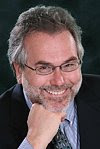I am convinced that this is a question of vital importance to the business community in general and the technology community in particular. But it is an issue that is only infrequently addressed, because of its complexity and because it is so difficult to analyze.
To show how diabolic the issue can be, let us consider the case of a company that rewards its patent attorneys according to their productivity. Getting more patents issued for the company, helps a patent attorney advance up the ranks and become better paid. Now let us say that a patent attorney working for this company receives an Office Action (for the uninitiated an "Office Action" is a communication from the U.S. Patent and Trademark Office [USPTO] telling the applicant that one or more of the claims [invention definitions] in the application are rejected) . Further, let us say that the USPTO has allowed some claims that will result in a trivial claim scope. For example, if a prehistoric applicant was applying to patent a chair, the patent office might have allowed a claim for a chair having legs that are painted chartreuse. If the applicant cancels the other claims, a patent will issue. If he takes no further action (such as filing what is known as a continuation application) he will have the exclusive right to make, use and sell chairs with legs painted chartreuse, and no more. But if he truly invented the chair, this is a terrible result. He could have the exclusive right to make, use and sell chairs, if he just fought for it, and this would be a very valuable right for a world grown tired of leaning against the cave wall. But this way he will only have the exclusive right to make, use and sell chairs with legs painted chartreuse, something that is close to valueless.
Our patent attorney now has a decision to make. On the one hand, he is getting his company a right that is meaningless. Moreover, the company will have to pay an issue fee and maintenance fees to obtain and maintan that right. On the other hand, he will get another patent in his count of patents issued to his set of applications, something that could help him advance up the ladder and make more money. If he does the right thing for his company, and continues to fight for broader protection, he will be punished. If he caves in and accepts the meaningless protection he will be rewarded.
The above example, of course, is extremely exaggerated. But for someone who does not work with patents all the time, telling the difference between a valuable claim and a valueless claim is not easy. I remember having a client that I thought was reasonably sophisticated ask me to look at a competitor's patent. He stated that it was pretty broad, a potential threat to his business, and asked "why can't you get us patents like this." I was rather concerned for about two minutes, until I got the patent onto my computer screen and read the claims. They were very narrow and certainly no threat whatsoever to my client (who never did hear a threatening word from the patent holder). I explained this to my client and he took back his rather insulting question.
In a rather strange twist some companies are now reverse auctioning off their patent work. The problem here is that there is no meaningful unit of work product on which to base the reverse auction. Defining "patent application" as the basic unit will only encourage the patent attorney drafting the patent to spend the minimum amount of time on it. The things that really matter in a patent application are typically not noticed by a client. For example, most clients do not realize the value of including a description of the method of using a new device in the text of an application. They would not know enough to downgrade a patent attorney who failed to do this. But I have had cases in which if I had not included a description of the method of using a device, my client would have never received meaningful patent protection. This is just one example. There are many, many things a good patent attorney can do to obtain an advantage for a client that the client would have no way of recognizing as a benefit.
Unfortunately, there is just no metric for assessing the productivity of a patent attorney that can be effective. Moreover, reviewing work product is both expensive, and may not be effective because the reviewer might not have the familiarity with the invention that the original drafter has, or could have had if he had asked a few more questions of the inventor.
This leaves open the question of best methods of using patent attorneys. It is easy to see what does not work. The tougher question is: "what does work"??
To gain insight into this question, we should look to other fields, in which it is hard for an employer to assess program effectiveness. I will be formuating my thoughts for my next post.

No comments:
Post a Comment